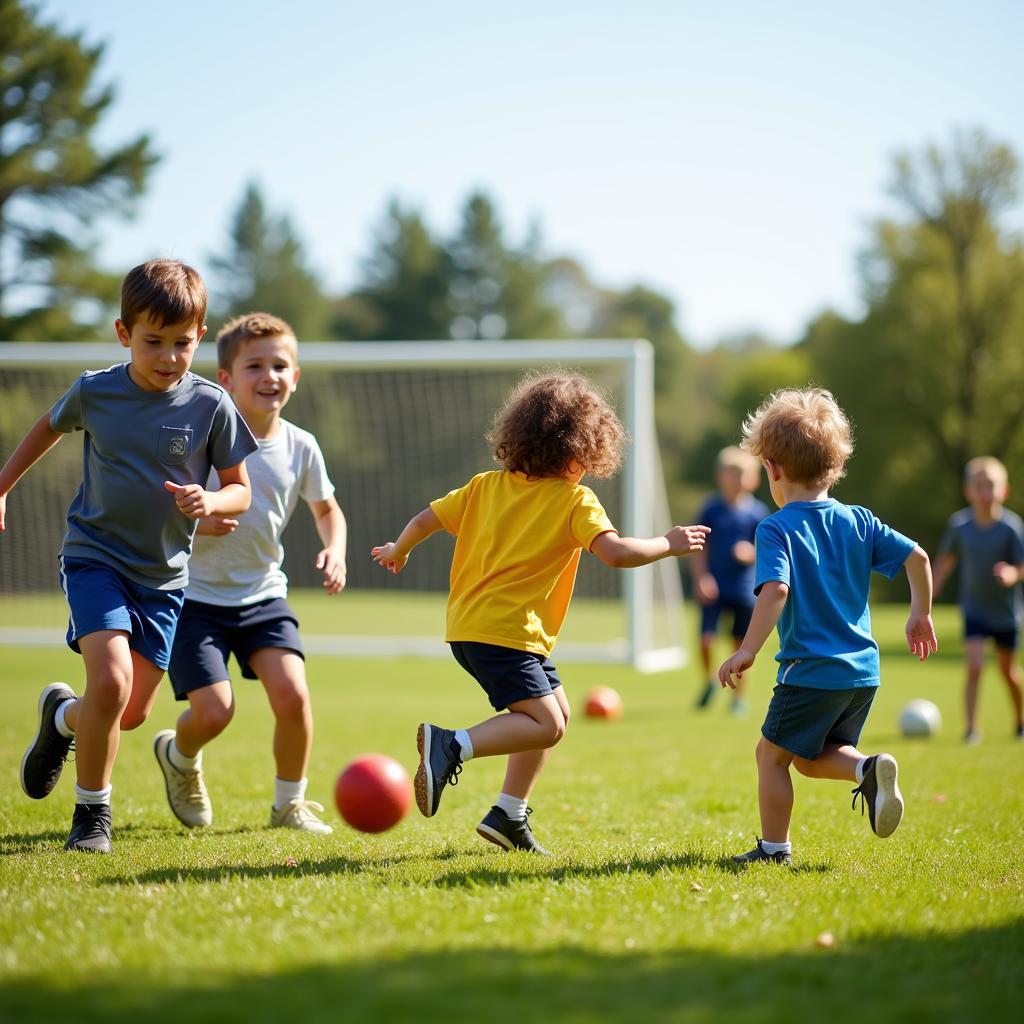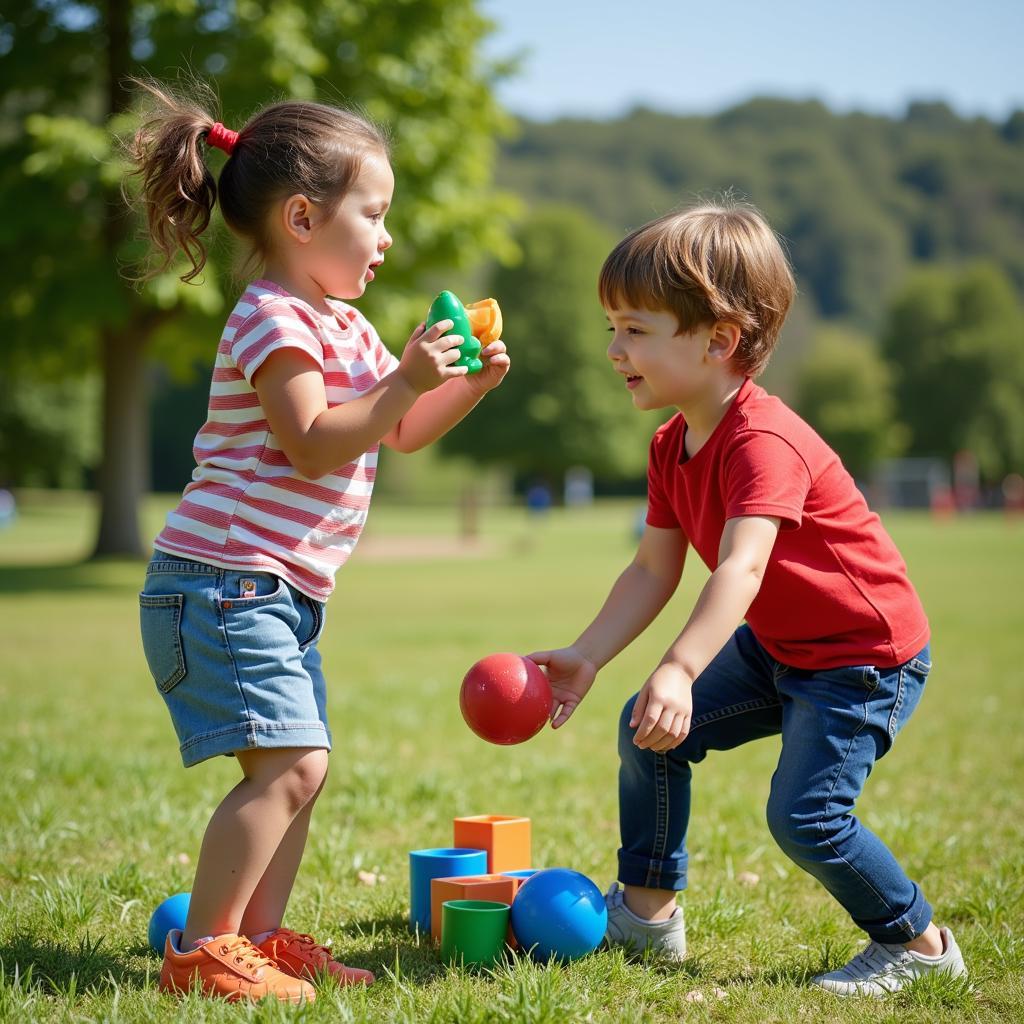“Bend the tree when it is young, teach children when they are young.” Games are not only a joy for children but also the most effective educational tool in the preschool stage. So, what is the role of games in the preschool education program and how are they organized? This article will explore the colorful world of children’s games with you. Want to learn more about preschool childcare tips? Follow along!
The Role of Games in Preschool Education
Games play a crucial role in the comprehensive development of preschool children. Through games, children develop physically, cognitively, linguistically, emotionally, and socially. Ms. Nguyen Thi Lan, a preschool education expert with over 20 years of experience, emphasized in her book “Nurturing Childhood”: “Games are the golden key that opens the door to children’s intellect and soul.” Indeed, learning through play is the most effective educational method at this age.
 Preschool children playing physical activities to develop motor skills
Preschool children playing physical activities to develop motor skills
Physical games like running and jumping, throwing balls help children improve their health, agility, and dexterity. Role-playing games and building games help children develop imagination, logical thinking, and problem-solving skills. Moreover, when participating in games, children interact and cooperate with friends, thereby forming teamwork skills and community awareness.
Types of Games in Preschool Education Programs
Current preschool education programs include many rich and diverse types of games, designed to suit each age group and educational goal.
Physical Games
As our ancestors often said, “as strong as an ox,” health is the most precious asset. Physical games help children develop physically and improve their health. Examples include games like “Dragon Snake Leaping Clouds”, “Cat and Mouse”, “Hopscotch”…
Role-Playing Games
I remember when I was little, my friends and I often played “doctor examining patients”, “teacher teaching students”… Role-playing games like these help children develop communication skills, express emotions, and role-play in different situations. Refer to specialized topic on nutrition education for preschoolers to gain more knowledge about nutrition for children.
Intellectual Games
Intellectual games such as puzzles, picture matching, finding differences… help children develop logical thinking, observation, and memory skills. For example, jigsaw puzzles not only train the dexterity of hands but also help children recognize shapes, colors, and sizes.
Folk Games
Folk games such as “O An Quan”, “Chi Chi Chanh Chanh”, “Nu Na Nu Nong”… are not only entertaining but also contain traditional cultural values. According to Assoc. Prof. Dr. Tran Van Binh, in the book “Educating Children Through Folk Games”, folk games help nurture children’s souls and sow the seeds of good moral values.
Frequently Asked Questions
- How to choose games suitable for children’s age? It is necessary to consider children’s motor skills, cognitive abilities, and interests.
- Where should games be organized for children? They can be organized in the classroom, on the schoolyard, or at home. The important thing is to ensure safety for children.
- What is a reasonable playtime for children? Playtime needs to be allocated reasonably throughout the day, children should not play for too long or too little. Refer to the monthly plan of the preschool principal for more information.
 Preschool children playing outdoor games
Preschool children playing outdoor games
Conclusion
Games are an indispensable part of the preschool education program. Hopefully, this article has provided you with useful information about games in the preschool education program. Let’s create a healthy and beneficial learning and playing environment for children. Want to learn more about delicious dishes for preschoolers? Explore more articles on our website. If you need further advice, please contact Phone Number: 0372999999, or come to address: 234 Hao Nam, Hanoi. We have a 24/7 customer care team.